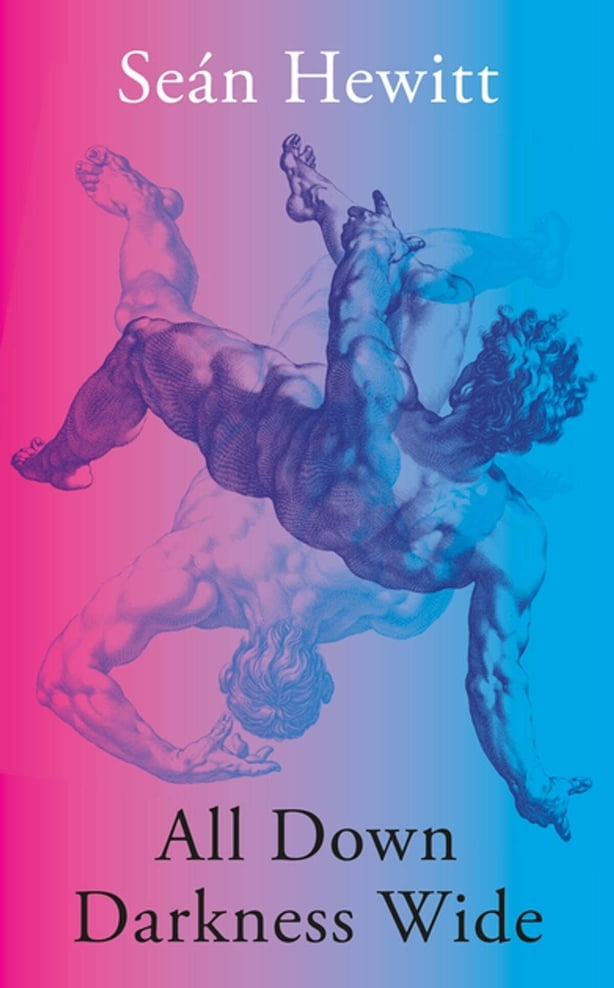Ghosts roam through Seán Hewitt's memoir, from the church graveyard he walks in late at night, where he meets a dating app hook up, to the blood he donates in school after having a sexual encounter with another man, which he says is "haunted" by shame.
What results is a distinctly unique work, an impassioned and honest story of Hewitt’s relationship with a Swedish man in the throes of depression, and a gripping exploration of queer love, shame, religion, loss and hope.
Hewitt, a poet whose 2020 collection Tongues of Fire dazzled critics, was born in Warrington, England and now lectures in English Literature in Trinity College Dublin. His style is decidedly literary, but he shares a raw, open-hearted honesty with one of the ghosts that haunt this book: Gerard Manley Hopkins.
Much like Hopkins, Hewitt was a young man plagued with shame at being gay. He writes about the timid steps he took to embrace his sexuality in school, getting a piercing in his left ear, "the gay ear" his classmates told him. He’s candid about a spontaneous sexual encounter with two men in college that triggered an awakening in him.
We need your consent to load this rte-player contentWe use rte-player to manage extra content that can set cookies on your device and collect data about your activity. Please review their details and accept them to load the content.Manage Preferences
Listen: Sean Hewitt talks All Down Darkness Wide with RTÉ Arena
Hewitt’s world is thrown into disarray when he learns that his university boyfriend 'Jack’ – all names have been changed in the book – had suddenly died. Hewitt hints at Jack’s depression, and recognises it in himself and others he has known. His bone-deep grief at the news is harrowing, and it opens questions about himself and the other gay men he knew who seemed to also walk "headlong into some winnowing fire" of tragedy.
As the title would suggest, darkness hangs over much of the book: the darkness of hiding, of being cast out if you were identified as gay. It rings beautifully through Hewitt’s imagery too, as he describes the world of meeting men in secret a "film negative" of the city. Hewitt’s experience of life as a young gay man was pockmarked with "lonely discovery", as men who came to him left just as fast in shame, leaving him to wrestle with his own guilt.
Contrasting this is the "light of discovery", which Hewitt finds in Elias, a confident and charming Swedish man he meets in Columbia. Their holiday romance blossoms into a loving relationship that reads like something out of an indie, sweater-weather rom-com. "The whole thing was built on hopes and idealism", he writes. "Real life was something other people lived when they weren’t in love, and I wouldn’t pay it much heed if I could help it."
This romance starts to unravel as the couple move to Sweden and Elias slips into a suicidal depression. A close call leaves both men reeling and alienated from one another, as Hewitt tries to bolster Elias’ mental health. "The clocks had re-set", he writes. "Everything started again here."
He writes of Elias as being "inhabited by a new person", and captures the devastating fear of losing someone you love to depression: the watchfulness, the wariness, the helplessness. "He was both the man I loved and the person who wanted to kill the man I loved", he writes.
Words offer a brief comfort, as they both work together to translate the poems of Swedish poet Karin Boye, another of Hewitt’s ghosts who comfort and warn in equal measure. Eventually, words become another prison, as the couple realise they struggle to bridge the gap between their two languages, as well as experiences.
Hewitt writes with the sensitivity of a person who has come through true trauma and gleaned lessons from it. He’s not maudlin or pessimistic. He’s also disinterested in offering optimistic platitudes.
"It is hard to account for the trauma of a thing that didn’t happen, hard to accommodate a fear based in an almost-event, a thing that might have occurred, but didn’t", he writes of the near-suicide attempt.
He also writes with an awareness of self that is refreshing, and avoids the overblown revelations of so many memoirs. His epiphanies are slow burners and mundane. For this reason, his account of the merging of his mindset with Elias’, and their eventual breakup, is potent and often devastating.
Hewitt’s reflections on where he was taught to be ashamed of his sexuality interweave with the text, as he considers the "shrapnel of overheard conversations" that put the idea in his head. Mirroring his own introspection with that of Hopkins is a moving reminder of the difficulties queer people still face in finding acceptance, be it in themselves or others.
There is, Hewitt writes, a "dangerous sense of inevitability" about the perceived fate of a queer person, and the book is the author’s attempt to write his way through those assumptions. The title is taken from a Hopkins poem, The Lantern out of Doors, and hints at the profound darkness that shrouds much of the book, but also the light.

All Down Darkness Wide is published by Penguin


